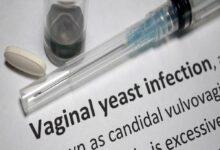
Top 15 HIV Diet and Nutrition Guidelines – When it comes to living with HIV, a comprehensive approach to healthcare is essential. In addition to adhering to antiretroviral therapy (ART) and regular medical check-ups, paying close attention to diet and nutrition can significantly impact overall health and well-being. Proper nutrition can bolster the immune system, improve energy levels, and enhance the body’s ability to cope with the challenges of living with HIV. Let’s delve deeper into each of the top 15 HIV diet and nutrition guidelines and explore how they can positively influence the lives of individuals living with the virus.
Here are the top 15 HIV Diet and Nutrition Guidelines:
1. Eat a Variety of Foods from All Five Food Groups:
A diverse diet ensures that you receive a broad spectrum of essential nutrients. Each food group offers unique vitamins, minerals, and other micronutrients that are vital for a healthy immune system. Fruits and vegetables, for instance, provide vitamin C, which helps support the immune system and aids in the absorption of iron from plant-based sources. Moreover, a variety of foods adds excitement and pleasure to your meals, making it easier to maintain a balanced diet.Top 15 HIV Diet and Nutrition Guidelines
👉 Relocate to Canada Today!
Live, Study and Work in Canada. No Payment is Required! Hurry Now click here to Apply >> Immigrate to CanadaRead Also: Top 15 Products with high profit margins in Nigeria 2023
2. Choose Lean, Low-Fat Sources of Protein:
Protein is crucial for repairing and building tissues, producing enzymes and hormones, and maintaining a strong immune system. However, not all protein sources are created equal. Opting for lean and low-fat options, such as fish, skinless poultry, beans, and tofu, ensures that you get the necessary protein without excessive saturated fat. Additionally, plant-based proteins offer additional benefits like fiber and antioxidants.Information guide Nigeria
3. Limit Saturated and Unhealthy Fats:
Saturated and trans fats, often found in red meat, butter, and fried foods, can contribute to heart disease and other chronic conditions. People living with HIV have an increased risk of cardiovascular issues, making it even more crucial to reduce the consumption of these unhealthy fats. Instead, focus on incorporating healthier fats like those found in avocados, nuts, and olive oil, which can have a positive impact on heart health.NYSC Portal
4. Emphasize Fruits and Vegetables:
Fruits and vegetables are true nutritional powerhouses, loaded with vitamins, minerals, antioxidants, and dietary fiber. The antioxidants found in these plant-based foods can help neutralize harmful free radicals, which may contribute to inflammation and disease progression. Including a variety of colorful fruits and vegetables in your diet ensures that you receive a wide array of health-promoting compounds.
Read Also: Top 15 Aftershave Balms in Nigeria
5. Choose Whole Grains over Refined Grains:
Whole grains are an excellent source of complex carbohydrates and fiber, providing a steady release of energy and aiding in digestion. Unlike refined grains, which have been stripped of their bran and germ, whole grains retain their nutritional value. They offer essential vitamins, minerals, and phytonutrients that support overall health, making them a better choice for individuals living with HIV.Romantic love message
6. Limit Added Sugars:
High sugar intake can lead to weight gain, insulin resistance, and inflammation, all of which can negatively impact health. People with HIV should be particularly cautious about their sugar consumption, as they may be at a higher risk of developing insulin resistance. To satisfy your sweet tooth, opt for natural sweeteners like honey or enjoy the natural sweetness of fruits.
7. Stay Hydrated:
Hydration is essential for everyone, but especially for those living with HIV. Drinking plenty of fluids, such as water and unsweetened beverages, helps maintain bodily functions and aids in the transportation of nutrients throughout the body. Additionally, proper hydration supports skin health, which is vital for individuals with compromised immune systems.
👉 Relocate to Canada Today!
Live, Study and Work in Canada. No Payment is Required! Hurry Now click here to Apply >> Immigrate to Canada8. Consider Supplementary Vitamins and Minerals:
Antiretroviral therapy can be lifesaving for people living with HIV, but it may interact with certain vitamins and minerals in the body. It’s important to consult with your healthcare provider about whether you need additional supplementation. For instance, some ART medications can deplete certain nutrients, and supplementation might be necessary to maintain optimal health.Good morning My Love Message
Read Also: 15 Counties with the most Lucrative Mining Resources
9. Practice Good Hygiene:
While diet and nutrition are crucial components of HIV management, other aspects of daily life also play a significant role. Regularly washing your hands, especially before eating and after using the bathroom, helps prevent the spread of infections, including those that might be opportunistic in people with compromised immune systems.
10. Cook Food Thoroughly:
Thoroughly cooking food, especially meat, poultry, and eggs, is essential for killing harmful bacteria and reducing the risk of foodborne illnesses. For individuals living with HIV, a compromised immune system can make them more susceptible to infections, making food safety practices even more critical.
11. Avoid Raw or Undercooked Foods:
Along the same lines, avoiding raw or undercooked meat, poultry, seafood, eggs, and dairy products further reduces the risk of foodborne infections. Consuming these foods in their raw state can expose you to harmful pathogens that your immune system might struggle to combat effectively.
12. Say No to Unpasteurized Milk and Juices:
Unpasteurized milk and juices can harbor dangerous bacteria, such as Salmonella and E. coli. These bacteria can be particularly harmful to individuals with weakened immune systems. To ensure safety, always opt for pasteurized versions of these products.
Read Also: Top 15 Nigerian Safari Parks
13. Address Food Allergies and Sensitivities:
For individuals living with HIV, managing food allergies or sensitivities is crucial to avoid any additional stress on the immune system. If you suspect you have any food allergies or intolerances, work with a healthcare professional or registered dietitian to identify and eliminate problematic foods from your diet.JAMB portal
14. Manage ART Side Effects:
While antiretroviral therapy is essential for HIV management, some medications may come with side effects. Some of these side effects may affect appetite, digestion, or nutrient absorption. If you experience any adverse effects from ART, discuss them with your healthcare provider or a registered dietitian. They can provide guidance on dietary adjustments and supportive measures to minimize these effects while ensuring proper nutrition.
15. Seek Professional Support for Weight Management:
Maintaining a healthy weight is vital for overall well-being, but it can be challenging for some individuals living with HIV. Weight loss or weight gain may occur as a result of the virus, medication side effects, or other factors. If you find yourself struggling to manage your weight, consider seeking support from a healthcare professional or registered dietitian who can create a personalized plan to help you achieve and maintain a healthy weight while ensuring adequate nutrition.
Read Also: Top 15 Award-Winning DJs in Nigeria
Conclusion:
Diet and nutrition play an integral role in the overall health and well-being of individuals living with HIV. By following these top 15 guidelines, individuals can make informed dietary choices that can positively impact their immune function, energy levels, and overall quality of life. However, it is essential to remember that each person’s nutritional needs are unique, and consulting with healthcare professionals and registered dietitians is crucial for developing personalized nutrition plans that address specific health concerns and support optimal well-being.
Check JAMB RESULT
Check and Confirm: How much is Dollar to Naira








